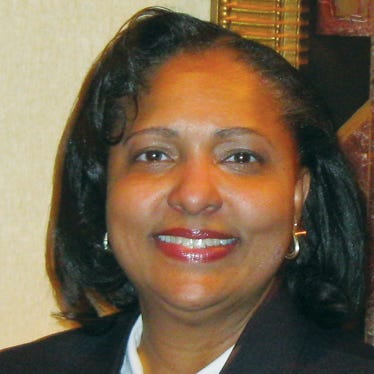Spotlight on industry leadership: A discussion with Elan Sudberg, CEO, Alkemist Labs
Heather Fairman of DF Guardian Consulting Inc. discusses leadership with Elan Sudberg, CEO of Alkemist Labs, a leading testing lab in the natural products industry.

Heather Fairman: What is your definition of leadership? And who was most influential in helping you identify yourself as a leader?
Elan Sudberg: “Leadership is the ability to compel people or organizations to follow you on the path you’re on … follow you into battle, into thought, into even coming to work for you.”
In the intricate world of lab testing within the dietary ingredient and supplement industry, where precision and accuracy is key and product innovation is growing, leadership takes on great significance. Elan Sudberg’s view is that leaders can convince people to follow them in various ways – through force, emotions or even through a mission-driven vision. It is a manner of influence.
Interestingly, Sudberg goes on to share with transparency his long struggle with “imposter syndrome” as a leader. Simply put, imposter syndrome is that uncomfortable feeling that you are unqualified and incompetent for the task, job or role you are in; everyone knows what they are doing but you, and any success is viewed less as experience and knowledge, and rather as chance or good luck. Many leaders, including even world leaders, have experienced this at some point in their lives. It’s not uncommon. Yet Sudberg admits that while he runs a very good lab, he’s always still surprised that people are drawn to come and work for him. Chuckling at himself, he said, “It’s a really great place to work, I’m a really great leader, and we do really great things for a really great industry … wow, they’re still believing my story, that’s very impressive.”
Influencers were very few in Sudberg’s life. He shared there were not any political or public figures who he could say influenced his life and career. However, an interesting group of people who did influence his character were bad managers. Sudberg explained, “I never want to be like those bad managers. It’s an avoidance of the terrible rather than the seeking of great.” Ultimately for him, it’s less about influencers, and rather how he would want to be treated or led that has helped him identify himself as a leader and shaped his leadership style.
Fairman: What was the most important lesson you learned very early in your career as you stepped on the first “rung” toward being a leader?
Sudberg: “Culture is king! It’s not a cliché.”
Sudberg refers to himself as a “Jatheist” — a “Jewish Atheist” who appreciated the stories and morals of his Jewish upbringing, but never the religious part of it. Why would this matter to his career growth? He has spent time meeting people of other faiths, trying to identify what he felt comfortable with. He found himself most comfortable with Tao Te Ching (or “Daodejing”). Although he would not consider himself a Daoist now, one of the key lessons he learned from that journey was about balance, and that moderation is a key to life — “the balance of reciprocity,” he called it. Sudberg shared how he incorporates this in his company by learning to listen to his staff. After delegating listening to one of his managers instead of doing it himself, he learned a valuable lesson when he lost almost 25% of his staff as a result of poor leadership by that manager.
After experiencing this negative outcome, Sudberg set out to implement innovative changes within his company that allow employees to digitally express their concerns anonymously. He realized he had not been cultivating the right culture as the leader — the importance of which he has now deeply bought into. This has helped him listen to his employees in a manner that has brought transformation to his workforce.
Fairman: What would you say is the single most important impact you could make as a leader in the industry?
Sudberg: “Take transparency and quality out of the closet.”
Sudberg emphasized that his philosophy and practice of reciprocity is important to the mission of the company in helping its clients make better products. Alkemist accomplishes this by striking a balance between listening to client concerns and needs while protecting the quality of their products. As a very strong advocate for his clients and the industry, Sudberg’s desire to make a greater impact as an industry leader grew during the Covid-19 pandemic. It was a time that caused him to reflect and “re-find his voice” — or another version of it. He had been fighting against false narratives since he started in the industry, and so when supply chain challenges arose during the pandemic, he explained how he discredited vendors’ claims regarding the authenticity of impure ingredients (e.g., elderberry). Years earlier, in 2015, he had fought against DNA testing of ingredients by challenging key supporters in the industry and disputing the narrative that consumers should have unfettered access to data. He believes the latter has given rise to negative and false narratives from some media that the industry is unregulated.
To combat these narratives, Sudberg strongly feels that industry leaders must become more transparent and strengthen the narrative that we are regulated, especially by sharing information “loudly” supporting products’ quality. And while Alkemist has taken the quality message and made it transparent, it’s one the entire industry needs to bring front and center to consumers.
Another impact Sudberg desires to have as a leader in the industry is, “making it more OK to speak up against ‘contemporary scientific consensus.” He referred to a 2022 California bill during the Covid-19 pandemic that prohibited doctors from speaking against the contemporary scientific consensus on the Covid-19 vaccine. Sudberg and others were vocally opposed to this bill, which was blocked in October 2023 by a federal court. He remains vehemently opposed to scientific consensus. When asked if he would consider himself an industry activist, he responded, “Yep! I am.” His emphatic goal is twofold — to resist and fight the false narrative of non-regulatory oversight that plagues the dietary supplement industry, as well as ongoing challenges from contemporary scientific consensus.
Fairman: With a focus on the future of the industries you serve, how important is it that the upcoming generations are mentored and trained to lead?
Sudberg: “I think we need more lions. There are too many sheep.”
Looking ahead to the future of the industry, Sudberg said he strongly believes too many people are afraid to speak out. Without going to extremes, a balance of expression is needed in speaking out about challenges against the industry. His concern is too many people staying quiet and not speaking up. Given that industry awareness has increased, the next step is to take action on issues that arise.
Sudberg feels privileged as a company owner to be able to boldly speak out. This positions him to be a very influential mentor to future generations. He recalls very vividly at a hoodia committee meeting about 25 years ago that he felt certain matters were being misrepresented. He challenged it but was unheard. There, a mentor of his told him, “Take off your shoe and bang it on the table until you are heard.” Although he didn’t actually do it, he never forgot those words. That person was Michael McGuffin, the current president of the American Herbal Products Association (AHPA). McGuffin has been an industry leader since 1974, and an expert on dietary supplement regulation. He remains one of Sudberg’s mentors.
In his closing thoughts on mentorship, Sudberg expressed that people should be mentored to be respectfully brazen and bold in speaking the truth. “Some people are meant to be sheep and not lions,” he said. “As a leader in this industry, it is important they learn to be safely provocative, appropriately provocative.”
Fairman: What are three key values that you will impart to the next generation of industry leaders?
Sudberg: “Reciprocity, tenacity, work-life balance.”
These three represent half of his company’s six key values.
Reciprocity — “Treat people the way you want to be treated.” Sudberg recalled he and his wife hating some of her jobs because she worked hard and long hours, came home, made dinner, then got right back to work, all on salary — all for nothing. As such, he took this experience and made sure his employees do not experience the same situation. The goal is that all employees’ families will love their family member’s job.
Tenacity — “Back to being a lion versus a sheep,” he said. “To be a leader, you have to be tenacious and not give up.” Wanting everyone to be lions and leaders is not realistic in his view. People are needed in every role, but as a leader, tenacity is a requirement.
Work-life balance — This is a core tenet for Sudberg. He remembers well the arduous journey and sacrifice to get to where he is, and knows that it took tenacity. But he shares with his staff that balance is critical in their lives or they will expire. That is why he’s made work-life balance one of the company’s six fundamental values.
For Sudberg, a focus on family, people, work-life balance, culture, integrity, quality, and reciprocity, are key values that collectively contribute to a leader's ability to influence others, inspire action, and foster commitment.
About the Author(s)
You May Also Like






.png?width=800&auto=webp&quality=80&disable=upscale)